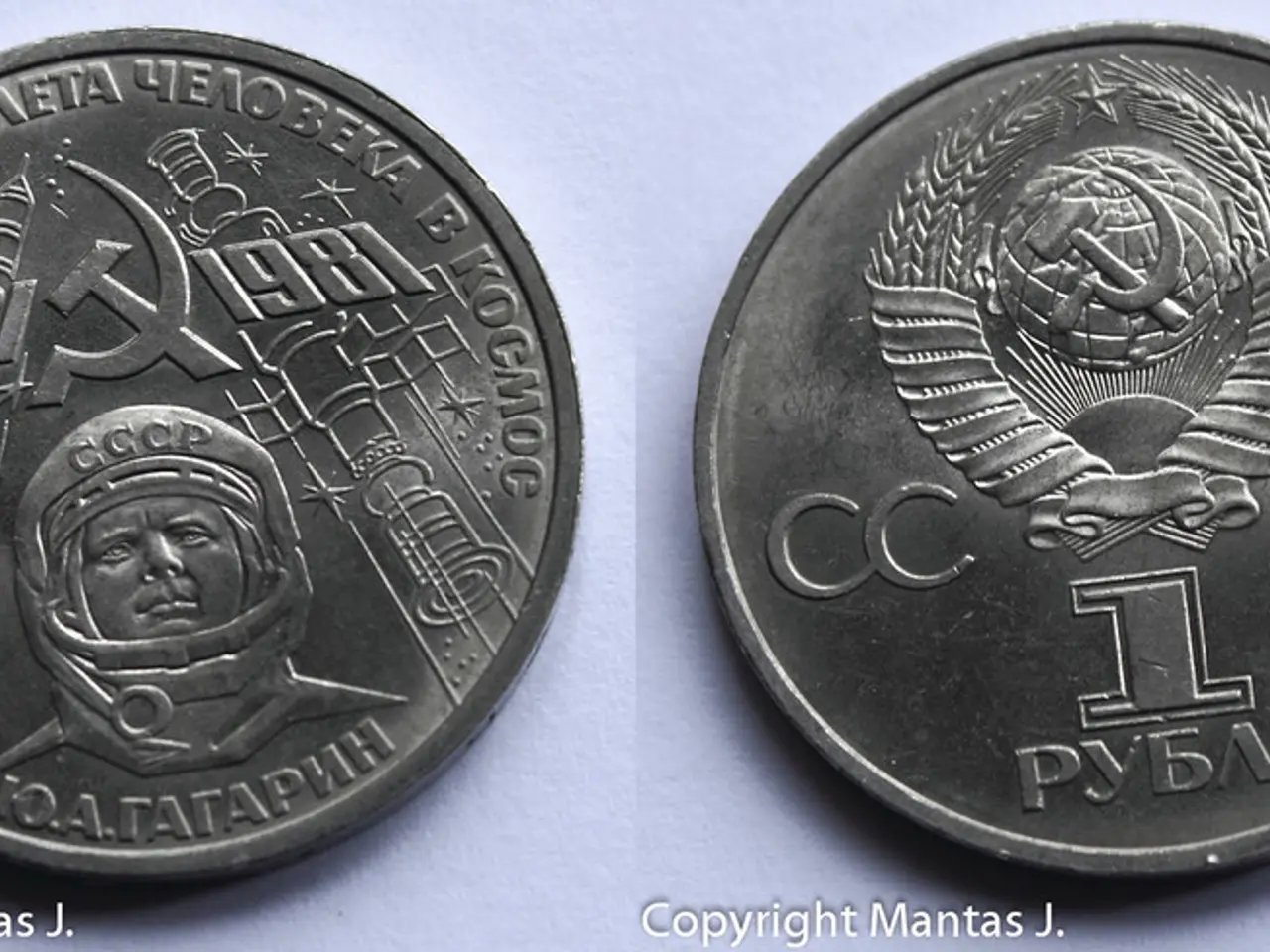Stablecoins and central banks square off in Korea for dominance
South Korea's Shift Towards Private Stablecoins: A Global Trend Emerging
In a notable development, the Bank of Korea (BOK) has paused its central bank digital currency (CBDC) project, with the second phase of the CBDC pilot being temporarily halted due to high costs, regulatory uncertainty, and a lack of a clear commercialization strategy [1][5]. This decision comes as major South Korean banks shift their focus towards developing private, won-pegged stablecoins [1][2][3].
The BOK governor, Rhee Chang-yong, has been making unprecedented visits to the six largest banks in Korea to discuss these private stablecoin initiatives [4]. These visits follow the banks' announcements of plans to create a joint stablecoin, setting up a potential race between public and private digital currency initiatives.
The BOK is currently involved in two major CBDC-related projects: Project Agora for cross-border payments organized by the Bank for International Settlements (BIS) and Project Hangang, a domestic project involving wCBDC that supports tokenized deposits for blockchain-based payments [4]. Project Hangang envisions using a variation of e-money style tokens for securities transactions settlement on third-party platforms.
However, Deputy Governor Lee Jong-ryeol has expressed a potential shift towards allowing deposit tokens on public blockchains [6]. This could lead to a coexistence of deposit tokens with stablecoins issued by the private sector, as outlined by Governor Rhee in his discussions with bank CEOs [4].
The South Korean government has eased regulations to facilitate private stablecoin issuance, requiring relatively low capital for issuance under the new Digital Asset Basics Act, promoting private innovation in this space [3]. However, the Bank of Korea remains cautious, voicing concerns that private stablecoins could undermine monetary policy effectiveness and introduce systemic risks [2].
The global implications of Korea's approach suggest that it could guide other jurisdictions grappling with similar tensions between innovation and control. The competition between CBDCs and private stablecoins could become a significant factor in digital currency development, regulatory frameworks, and geopolitical financial power balances worldwide [1][2].
The Bank for International Settlements (led by a Korean official) has recently adopted a stricter stance on stablecoins globally, identifying them as potentially “unsound money,” which indicates ongoing international regulatory tension around stablecoins versus CBDCs [1]. Meanwhile, the shift towards private stablecoins reflects a desire to counterbalance the U.S. dollar’s dominance in global stablecoins, potentially influencing other countries to prioritize their own currency-backed private stablecoins and thus reshaping the international digital asset landscape [2].
In response to this competitive dynamic, central banks, such as the BOK, may need to reconsider their strategies and approaches. The approach of combining direct engagement, financial incentives, and strategic accommodation in Korea could become a playbook for central banks worldwide as they navigate the transition to digital currencies. The urgency central banks feel in this transition is evident in the unprecedented nature of the Governor's bank visits [4].
- The Bank of Korea (BOK) has halted its central bank digital currency (CBDC) project's second phase, with major South Korean banks instead focusing on developing private, won-pegged stablecoins.
- Governor Rhee Chang-yong of the BOK is discussing these private stablecoin initiatives with the six largest banks in Korea, including plans for a joint stablecoin.
- The BOK is involved in two CBDC-related projects, Project Agora for cross-border payments and Project Hangang, which supports tokenized deposits for blockchain-based payments.
- Deputy Governor Lee Jong-ryeol has suggested a potential shift towards allowing deposit tokens on public blockchains, leading to a possible coexistence of deposit tokens with stablecoins issued by the private sector.
- The South Korean government has eased regulations for private stablecoin issuance, promoting innovation in this space, while the Bank of Korea voices concerns about potential risks and impacts on monetary policy effectiveness.




